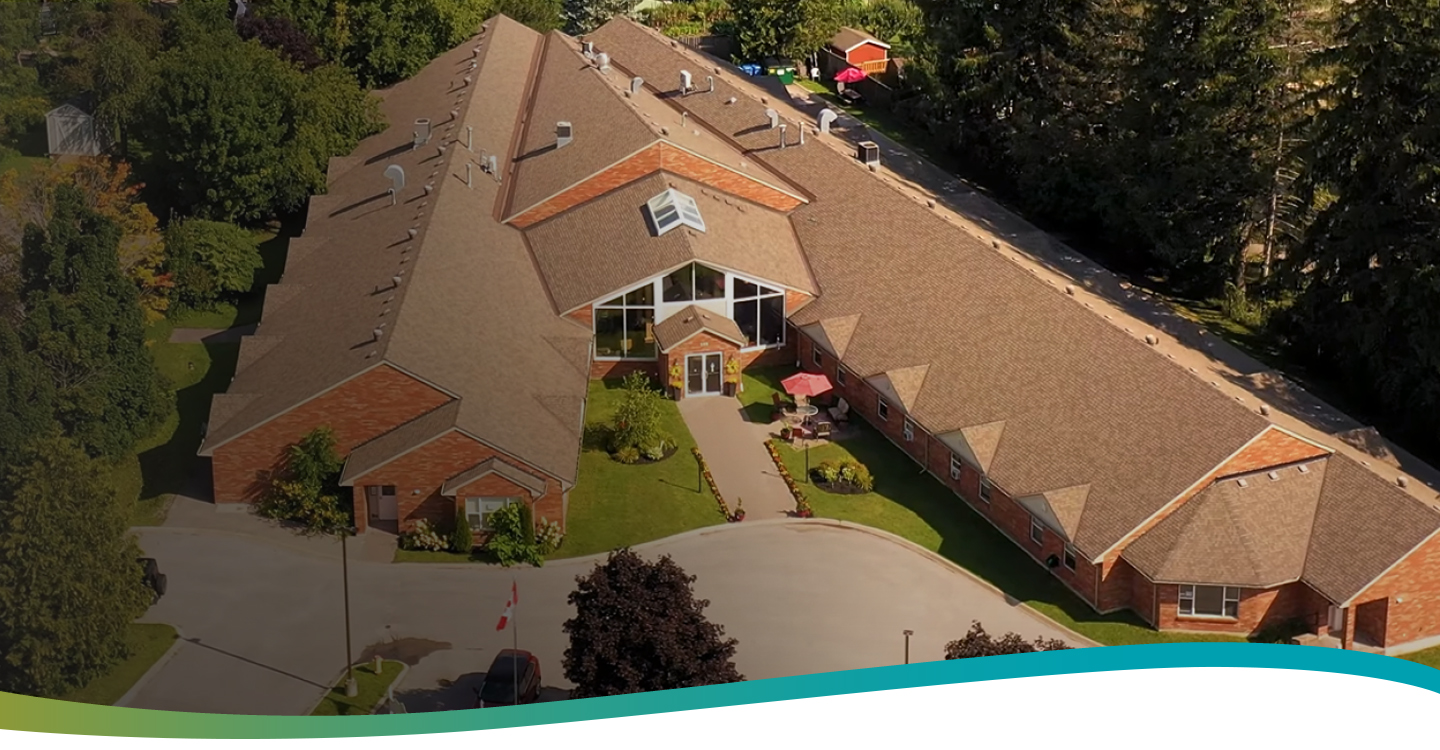FAQs
Learn what common senior living terms mean as you explore care options and community life.
Making sense of senior living
While exploring your options and learning which questions to ask, you may come across terms that feel unfamiliar. These FAQs help explain the language often used in senior living so you can better understand your choices and what matters most to you.
Long-term care is when you require the availability of 24-hour nursing care and supervision within a secure setting. In general, Long Term Care Homes offer higher levels of personal care and support than those typically offered by either retirement residences or supportive housing.
Government-funded and regulated through the Ministry of Health and Long Term Care. The government pays for your care and services. You pay a co-payment to cover accommodation.
If you cannot afford the basic accommodation rate, there is a subsidy available. Subsidies are only available for basic accommodation. On average, residents in basic, subsidized accommodation pay 35% of costs and the province pays 65%.
Retirement is 100% private pay. Additional services may be part of a basic service package or may be available as options. These often include daily housekeeping, laundry of personal items, medication administration, bathing, parking, room service, guest dining, guest accommodation, on-site hair salon, and esthetic services, banking, and more.
Many residences offer additional health care services such as visiting physician, foot care, physiotherapy, and lab service.
Anyone can apply to a retirement residence. The service package available will determine whether a residence meets your desires and needs.
Independent living is a term used to describe accommodations that consists of a studio, one-bedroom, or two-bedroom apartment. Independent living provides a home environment without the responsibility of home maintenance or cooking. Residents have access to social activities, excursions, and special events as well as all amenities such as libraries, exercise rooms, or cafes. Certain care services, such as medication administration, may be included or may be available for additional fees. Emergency assistance is available 24 hours a day. Here, residents also enjoy delicious and nutritious meals, can enjoy a feel of ‘home’ in any way that they wish and may be able to access additional services as needs change.
Assisted living is a term used to describe accommodations if you need extra help but are still independent. Assisted living provides the home environment of independent living with extra care services such as assistance with dressing, bathing, grooming and medication. Depending on the home, you may be able to stay in the same independent living suite while obtaining assisted living services. The benefits with assisted living is that you can access additional supportive services, medical services and personal support while still being able to live as you wish and enjoy life within your residence.
Memory care living is a term used to describe a supportive, safe and secure environment for people with mild dementia all the while providing opportunities for residents to live life to the fullest through social, recreational and fitness activities. Memory care living residences are equipped with the expertise to support seniors with different forms and levels of dementia.
Yes, recovery care and convalescent care refer to the same type of short-term support. This care is designed for people who are recovering from an illness, injury, or surgery and need some help before returning to full independence. It can include assistance with daily activities like dressing or bathing, medication management, nutritious meals, and access to medical or nursing support — all focused on helping you regain strength and confidence while you recover.
A Personal Support Worker, often called a PSW, is a trained caregiver who provides hands-on assistance and companionship to older adults. PSWs help with daily activities such as bathing, dressing, mobility, and meals, while also offering emotional support and conversation. They play an important role in both home care and retirement living settings, supporting residents in assisted living or long-term care.
Other common titles for similar roles include personal service worker, home support worker, health care aide, or supportive care assistant.
Respite care is a short-term stay in a retirement residence that offers temporary support for an older adult and a break for their caregiver. It’s often used when a family member who provides daily care needs time to rest, travel, or attend to other responsibilities — or when someone simply wants to try out retirement living before making a longer-term move.
During a respite stay, guests enjoy comfortable accommodations, nutritious meals, daily activities, and access to personal care if needed. It’s a flexible way to experience the lifestyle, receive support, and give everyone peace of mind.
More helpful resources
Continue your search with helpful resources on what to ask, how to compare communities, and what daily life at Atrium feels like.
Still have questions?
Every person’s journey looks a little different. If you’d like to talk through your options or ask something not covered here, our team is happy to help.
Convenient Location in the Community
Set in the heart of Orillia, Atrium is part of a vibrant, walkable community known for its charm and connection. With cafés, shops, parks, and familiar places just around the corner, residents enjoy the comfort of a close-knit residence and the freedom of being surrounded by the life they’ve always known.
Our Address:
230 Coldwater Rd, Orillia, ON, L3V 3M2
Call Us:
705-325-7300
Ready to take a look around?
It’s natural to have questions. A visit can give you clarity, comfort, and a real sense of what daily life here feels like.

